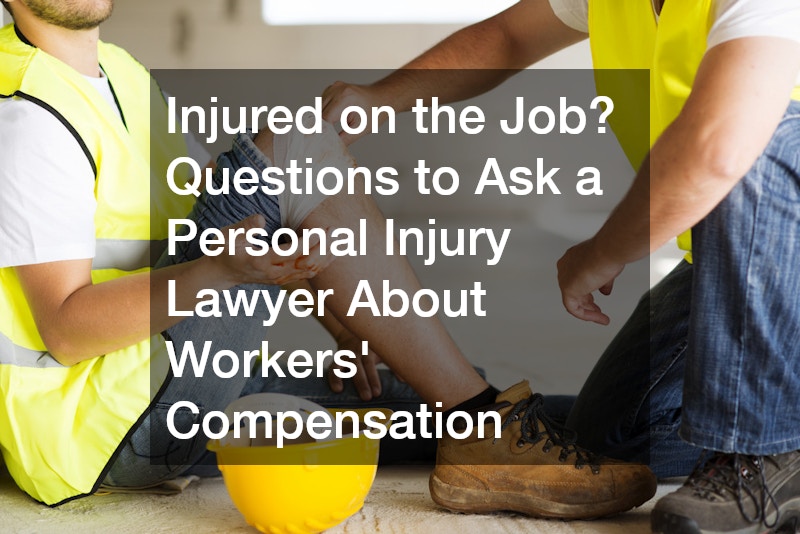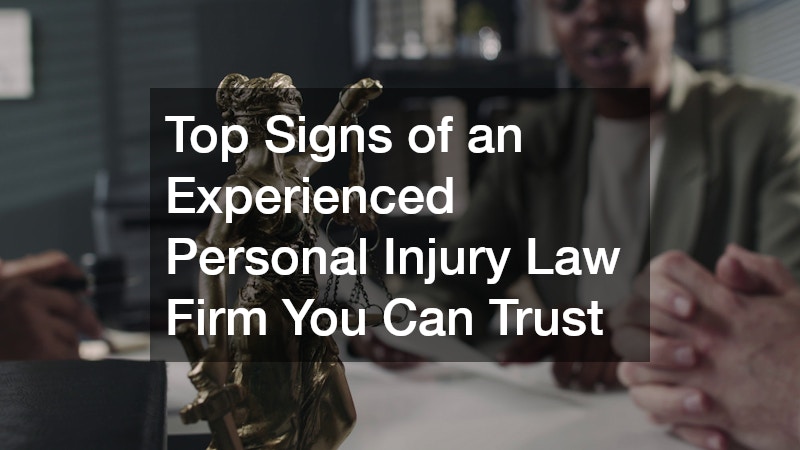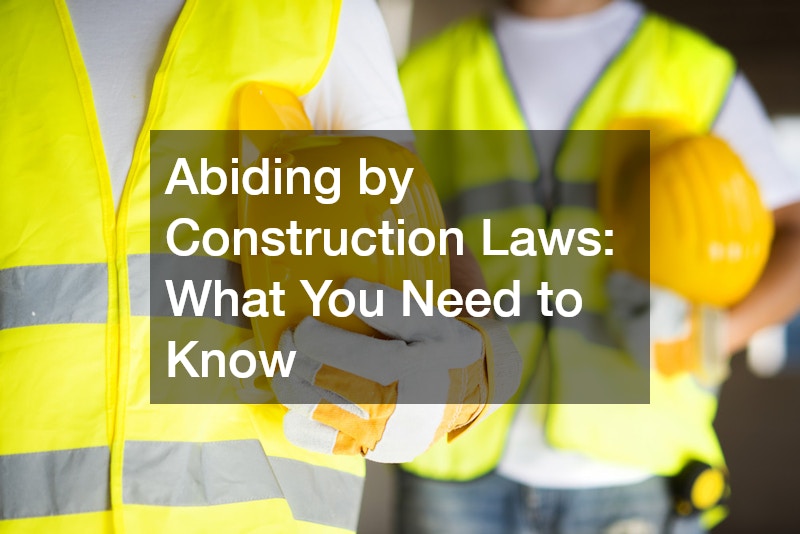
Getting injured on the job can be a life-altering experience, both physically and financially. While workers’ compensation laws are designed to protect employees and provide them with financial relief, the process is often confusing and difficult to navigate without legal support. Hiring a personal injury lawyer experienced in workplace injuries can make a significant difference in how your claim is handled.
However, not all lawyers are created equal, and finding the right one starts with asking the right questions. If you’re wondering what to ask a personal injury lawyer about your workers’ compensation case, this comprehensive guide is for you. We’ll walk you through essential topics and must-ask questions that can help you secure the compensation you deserve and ensure that your rights as a worker are fully protected.
Why You Should Speak to a Personal Injury Lawyer After a Workplace Injury
Workplace injuries can range from minor cuts and sprains to catastrophic injuries or long-term illnesses caused by exposure to hazardous conditions. Unfortunately, many injured workers don’t fully understand their rights or how the workers’ compensation system works until it’s too late. Consulting a personal injury lawyer can help clarify your legal options and determine whether your claim is being handled properly.
Here’s why legal consultation is critical:
- Insurers have legal teams focused on minimizing payouts.
- Your employer may dispute your claim or delay your benefits.
- You may be entitled to more than workers’ comp, such as third-party claims.
Hiring a knowledgeable lawyer ensures that you’re not left vulnerable during a stressful and financially burdensome period.
What Is Workers’ Compensation and What Does It Cover?
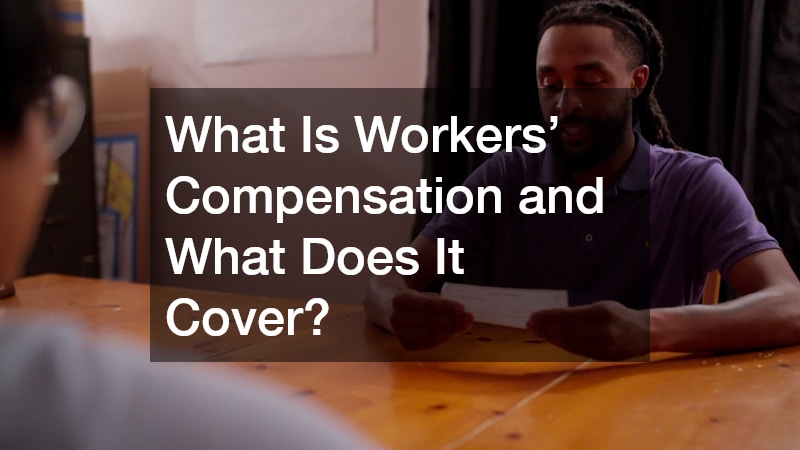
Workers’ compensation is a form of insurance that provides wage replacement and medical benefits to employees injured during the course of employment. In exchange, the employee relinquishes the right to sue their employer for negligence.
Key Benefits Typically Covered:
- Medical expenses related to the injury or illness
- Temporary or permanent disability benefits
- Lost wages during recovery
- Vocational rehabilitation
- Death benefits (to families in fatal cases)
What It Does Not Cover:
- Pain and suffering
- Punitive damages
- Injuries resulting from intoxication or self-inflicted harm
Although workers’ compensation laws vary by state, most employers are required to carry coverage. Understanding what’s covered and what’s not is essential before deciding how to proceed with a claim.
When Should You Contact a Personal Injury Lawyer?
Some workplace injuries may be straightforward, and you might think you don’t need a lawyer. But there are specific situations when hiring a personal injury lawyer is highly advisable:
- Your claim is denied or delayed.
- You suffer permanent disability or need long-term care.
- You are receiving inadequate benefits.
- A third party contributed to your injury.
- Your employer retaliates against you for filing a claim.
- You feel pressured to return to work before you’re ready.
In such cases, legal representation becomes a powerful tool to ensure that your case is properly evaluated and that you’re compensated fairly.
What Experience Do You Have With Workers’ Compensation Cases?
When meeting with a personal injury lawyer, it’s important to determine their level of experience with cases like yours. A generalist may not have the in-depth knowledge required to navigate the complexities of workers’ compensation law.
Questions to Ask:
- How many workers’ compensation cases have you handled?
- What percentage of your practice focuses on workplace injury claims?
- Can you provide examples of similar cases and their outcomes?
- Are you familiar with the laws specific to my state or industry?
The more experienced your lawyer is with workers’ compensation claims, the better they can anticipate challenges and guide your case toward a favorable outcome.
How Do You Charge for Your Services?
Understanding how a lawyer gets paid is crucial before hiring them. Most personal injury lawyers work on a contingency fee basis, meaning you’ll pay them only if you win your case. However, it’s still important to clarify all associated costs upfront.
Ask These Questions:
- Do you charge a contingency fee or an hourly rate?
- What percentage of the settlement do you take as your fee?
- Will I be responsible for any upfront costs or expenses?
- Are there any hidden fees I should know about?
Getting a clear picture of legal costs ensures you won’t be surprised later and can plan your finances accordingly.
How Long Will My Workers’ Compensation Case Take?
The timeline for resolving a workers’ compensation case can vary widely depending on the severity of the injury, cooperation of the employer and insurer, and whether litigation is necessary.
Questions to Ask:
- What is the typical timeline for cases like mine?
- What factors could speed up or delay the process?
- Can we resolve this without going to court?
- How often will I receive updates on my case?
While no lawyer can promise a quick resolution, they should be able to give you a realistic expectation based on your specific circumstances.
What Should I Do to Protect My Claim?
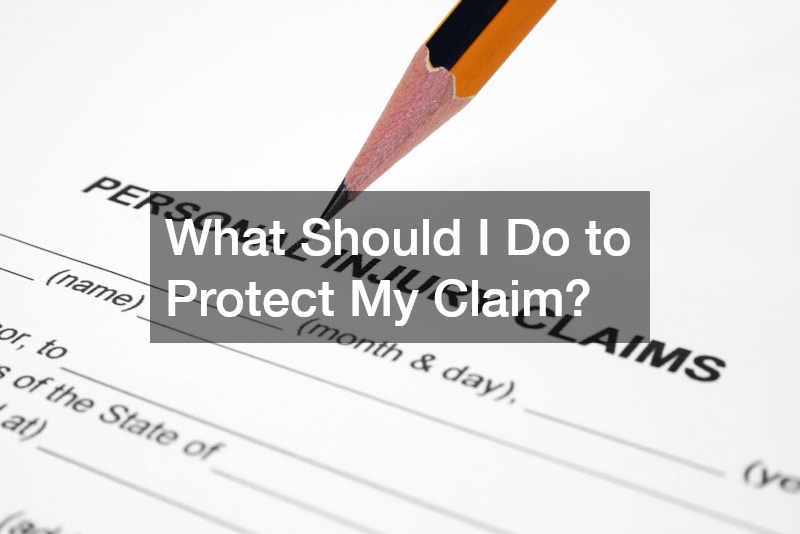
Injured workers often make mistakes early in the process that hurt their chances of receiving fair compensation. Asking your lawyer for guidance can help you avoid common pitfalls.
Key Questions to Ask:
- Should I talk to my employer’s insurance company?
- What documents do I need to keep or submit?
- Should I get a second medical opinion?
- What actions could harm my case?
Being proactive and informed is the best way to protect your rights and build a strong case from the start.
Workers’ Compensation May Not Be Your Only Option
Questions to Ask a Personal Injury Lawyer About Workers’ Compensation and Beyond
While workers’ comp is the standard remedy for job-related injuries, it’s not your only path to compensation. In some cases, third-party liability claims can yield additional compensation for pain, suffering, and long-term losses.
Ask Your Lawyer:
- Are there other legal claims I can pursue beyond workers’ comp?
- Can I file a personal injury lawsuit against a third party?
- How do I know if product defects or safety violations played a role?
- Will pursuing additional claims impact my workers’ comp benefits?
A good lawyer will evaluate all angles of your case and help you pursue every available path to justice and recovery.
What Happens If My Employer Retaliates Against Me?
It’s illegal for employers to fire, demote, or harass employees for filing a legitimate workers’ compensation claim. Unfortunately, retaliation does happen, and you need to be ready to fight back.
Ask Your Lawyer:
- What are my rights if I face retaliation?
- Can I sue my employer for wrongful termination?
- What evidence should I collect?
- Will you help me file a complaint with the appropriate agency?
If you’re facing pushback for asserting your rights, your lawyer should act swiftly to hold your employer accountable.
How Can I Maximize My Workers’ Compensation Settlement?
Getting every dollar you deserve starts with understanding the value of your case. A qualified lawyer can assess your injuries, wage losses, and long-term impacts to ensure you receive the maximum settlement.
Questions to Ask:
- How is my case value calculated?
- What can I do to strengthen my claim?
- Will hiring a vocational expert or medical specialist help?
- Can we negotiate a lump-sum settlement?
You deserve fair compensation that reflects the true impact of your injury on your life and livelihood.
How Will You Communicate With Me Throughout the Case?
Good communication is a sign of a reliable lawyer. You should never be left in the dark about what’s happening with your case.
Questions to Clarify:
- How often will you update me?
- Who will be my point of contact—an attorney or a paralegal?
- How quickly do you respond to emails or calls?
- Will I receive written summaries or progress reports?
If a lawyer is vague about communication, that may be a red flag. Choose someone who makes your case a priority.
What Are My Chances of Winning?
While no ethical lawyer will promise victory, they can give you an informed opinion about the strength of your case and potential outcomes.
Ask:
- Based on your experience, how strong is my case?
- What are the biggest risks or weaknesses?
- Are there steps we can take now to improve my chances?
An honest lawyer will help you manage expectations while also working to secure the best possible result.
What Documents Should I Bring When Meeting a Personal Injury Lawyer?
Before your first consultation with a personal injury lawyer, it’s crucial to come prepared with documentation that can help them assess your workers’ compensation case. Bringing the right materials allows the lawyer to give you a more accurate evaluation and speeds up the process of filing your claim.
Here are the essential documents you should gather:
- Accident report filed with your employer or HR department
- Medical records and treatment history related to your injury
- Photos of the injury, accident scene, or equipment involved
- Pay stubs to show lost wages or proof of income
- Witness statements or contact information of coworkers who saw the incident
- Correspondence with your employer or insurance company
- Work restrictions or doctor-issued notes
- Previous injury records if applicable
Organizing these documents before meeting your lawyer will help them build a stronger case and provide immediate insights into your legal options.
Final Thoughts: Choosing the Right Advocate for Your Recovery
Getting injured on the job can be an overwhelming experience, but you don’t have to go through it alone. Knowing which questions to ask a personal injury lawyer about workers’ compensation empowers you to take control of your situation. From understanding your legal options to making sure your claim is properly managed, the right legal advocate can be the difference between a denied claim and a full, fair settlement.
Whether you’re just starting the claim process or have hit a roadblock, now is the time to ask the hard questions and ensure your rights as a worker are fully protected.

